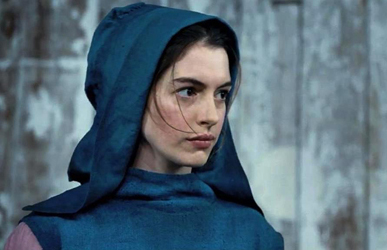As a fan of musical theater, I'd like to read an in-depth article about ways that shows have been adapted into movies, both successfully and unsuccessfully. What's the best way to shift the scope? People on stage have to display outsized emotions to play to the back of the theater, so how do you adapt the tone for the big screen? Why does Dreamgirls work so well, while Rent is such a pile of crap? Is it all directorial choices, or is there something built into the genetic code of a musical that affects how the movie version turns out?
After seeing Tom Hooper's Les Miserables, I'm no closer to answering these questions. I was more excited to see it than almost any other movie this year, for lots of reasons. I enjoyed the stage version. Tom Hooper is an accomplished director, as The King's Speech showed. I'm a fan of several of the actors. So I really had a lot of goodwill built up as I walked into the theater.
Which this movie then did a thorough job of chipping away. I'll say at the outset that I don't think it was terrible. In fact, it wasn't even bad; it was just very strangely cobbled together. A lot of the camera work is disjointed and repeated several times. A character dies, and instead of trusting the audience to know that instinctively, a sickening neck crunch sound effect is added in, just so you really, really know he's dead. The idea to have the actors sing live into the camera, rather than lip sync to themselves was... Well, I've seen it called a "noble experiment", and would agree. When someone was good, it showed, but by the same token, when someone was bad, it blared out like a siren.
Hugh Jackman, Anne Hathaway, and Samantha Barks were all remarkably good (as were some of the secondary characters), while everyone else was mediocre or worse. That's not an acceptable ratio. My biggest issue is with Marius, and I'm still trying to work out how much of that is the character's failings, and how much is the fault of Eddie Redmayne, who looks about as much of a 19th-century Frenchman as I look like Alfre Woodard. A lot of the plot revolves around characters sacrificing so that Marius can have a better life, and there is just no indication of why he deserves all this adoration.
That's kind of what I meant about how to adapt tone from a musical into a movie. As a stage show, Les Miserables is a grand, sweeping tragedy. On the screen, it comes off as a tale of how everyone in world loves a wealthy, self-involved dilettante.
Les Miserables: B-
Subscribe to:
Post Comments (Atom)




0 comments:
Post a Comment